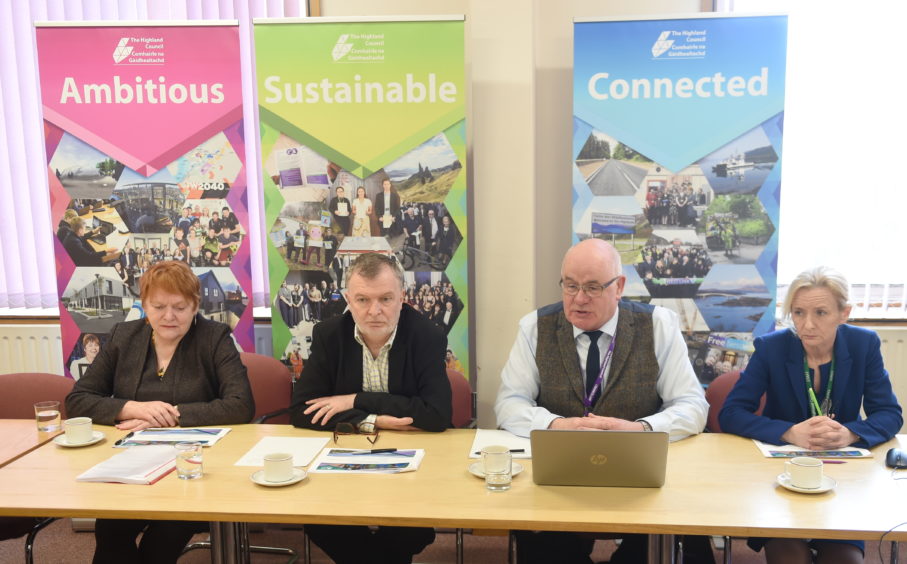Council tax for Highland residents could rise by almost 5% from April 1, council bosses have revealed in advance of next week’s 2020/21 budget setting meeting.
They say that in their listening sessions around the Highlands the public have told them they wouldn’t mind paying extra council tax to improve services, particularly roads.
The rise will be 4.84% – the maximum permitted by the Scottish Government – equating to £1.18 per week, or £61 per year, for Band D.
Of the rise, 3% would help the council balance its 2020/21 budget by raising more than £4m towards a £20.5m budget gap.
The remaining 1.84% would generate £2.3m each year to invest in roads.
Council bosses say they will use £1m to lever £20m in borrowing for investment in capital schemes for structural repairs.
The remaining £1.3m will be available annually for maintenance such as potholes and gulley clearing.
Council leader Margaret Davidson described the forthcoming budget as ‘a budget for roads.’
She said: “Our roads are dissolving.
“We’ve spent the last two decades investing in education and social work, and neglecting roads, we need to turn that round.
“This will see us looking at the biggest ever investment in people, plant and places to fix our roads.”
Council bosses say they are confident of getting the cross-party support required to pass the 4.84% council tax rise at the budget setting meeting next Thursday.
Tory opposition group leader Andrew Jarvie said he had nothing against the council tax increase, but raised concerns about the payback time for the £20m borrowed.
He said: “According to the Public Works Loan Board, a loan of £20m would take 35-40 years to pay back at £1m a year.
“But when it comes to borrowing you borrow against the life of asset, and resurfacing a road has life of 20 years, with surface dressing at 10 years to extend total life to 20 years.
“So the £20m will be borrowed over 40 years but at 20 years the road will need to be resurfaced again while still be paying off the original loan.
“I’m worried we’re lumping ourselves with unsustainable debt, or perhaps only borrowing a more realistic £10m to cover the 20 year life time of the resurfacing.”
Opposition SNP group joint leader Councillor Ian Cockburn said his party was also concerned about the repayment
He said: “Like a mortgage, borrowing has to be paid every year for the length of the borrowing period, they are talking about 40 years.
“Therefore to finance the money through council tax rises they would have to put up the council tax every year with this 1.84%, before they even talk about other rises in the tax, unless they transfer this over to the capital budget – however this would limit their school building capacity.”
